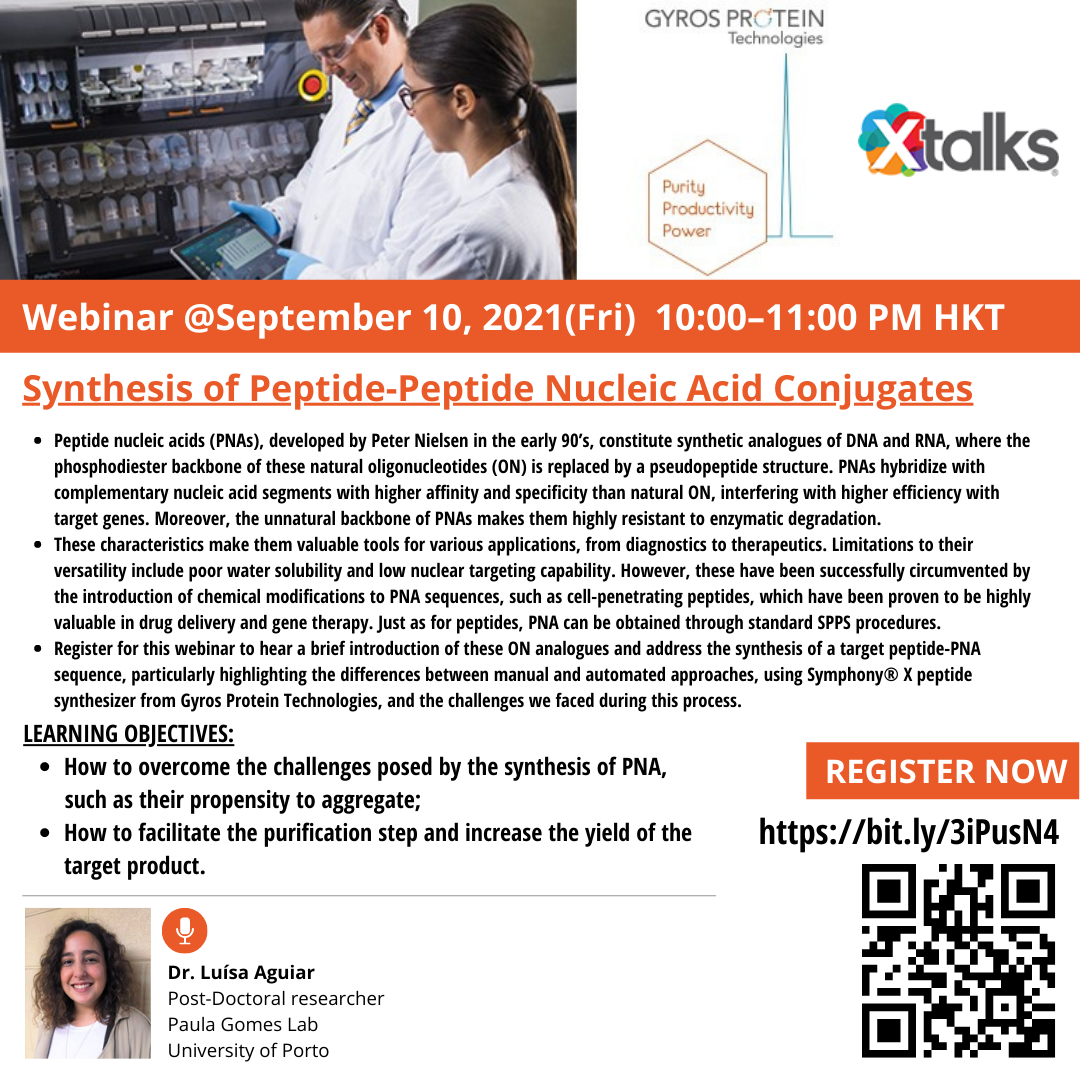Gyros Protein Technologies Webinar@September 10, 2021(Fri)
2021-08-19 08:46:53 Source:Gyros Protein Technologies
Webinar: Synthesis of Peptide-Peptide Nucleic Acid Conjugates
Date: Friday 10th September 2021
Time: 10:00–11:00 PM HKT

Peptide nucleic acids (PNAs), developed by Peter Nielsen in the early 90’s, constitute synthetic analogues of DNA and RNA, where the phosphodiester backbone of these natural oligonucleotides (ON) is replaced by a pseudopeptide structure. PNAs hybridize with complementary nucleic acid segments with higher affinity and specificity than natural ON, interfering with higher efficiency with target genes. Moreover, the unnatural backbone of PNAs makes them highly resistant to enzymatic degradation.
These characteristics make them valuable tools for various applications, from diagnostics to therapeutics. Limitations to their versatility include poor water solubility and low nuclear targeting capability. However, these have been successfully circumvented by the introduction of chemical modifications to PNA sequences, such as cell-penetrating peptides, which have been proven to be highly valuable in drug delivery and gene therapy. Just as for peptides, PNA can be obtained through standard SPPS procedures.
Register for this webinar to hear a brief introduction of these ON analogues and address the synthesis of a target peptide-PNA sequence, particularly highlighting the differences between manual and automated approaches, using Symphony® X peptide synthesizer from Gyros Protein Technologies, and the challenges we faced during this process.
LEARNING OBJECTIVES:
• How to overcome the challenges posed by the synthesis of PNA, such as their propensity to aggregate;
• How to facilitate the purification step and increase the yield of the target product.
Speaker:
Dr. Luísa Aguiar, Post-Doctoral researcher at Paula Gomes Lab, University of Porto
Dr. Luisa Aguiar first came in contact with bioactive peptides in her master’s thesis in Chemistry, which she developed in Prof. Paula Gomes’s Lab (www.fc.up.pt/pessoas/pgomes/) at the Faculty of Sciences of the University of Porto, Portugal. In this project, she synthesized cell-penetrating peptides that were able to promote efficient intracellular delivery of oligonucleotides for gene therapy.
She next pursued her Ph.D. in sustainable chemistry in the same lab, which she completed in 2019, with a doctoral project focused on development of bioactive peptides modified with antimalarial drugs to try to improve their biological activity. Since then, she has been working more closely with antimicrobial peptides derived from snake venoms and, in parallel, dedicated to implementing the synthesis of peptide-nucleic acids in the laboratory.
Register NOW :




